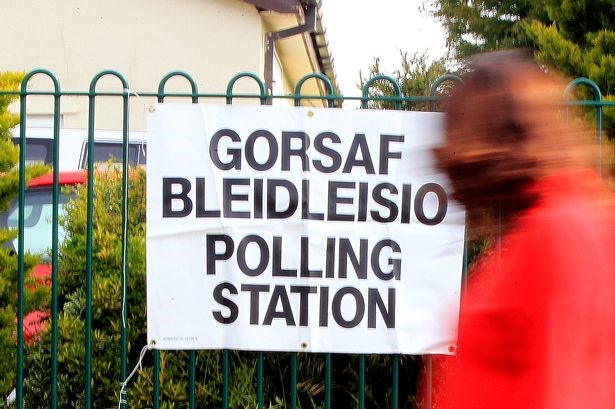
New law to make it easier for more people in Wales to stand to be local councillors
Cyfraith newydd i’w gwneud yn haws i bobl yng Nghymru sefyll i fod yn gynghorwyr lleol
Councillors will be able to remotely attend council meetings more easily and job share cabinet posts, while councils will need to broadcast their meetings online, under new Welsh Government plans to support increasing diversity and transparency in local government.
The Local Government and Elections (Wales) Bill, introduced to the National Assembly for Wales in November, provides for the establishment of a new and reformed legislative framework for local government elections, democracy, performance and governance.
Increasing the diversity of elected members helps councils to better represent the communities they serve, by bringing a wider range of views and experiences to the table.
To achieve this, the Bill will:
- Strengthen existing arrangements to enable councillors to remotely attend council meetings and have periods of family absence. The change will make it easier to update arrangements for periods of family absence as policy develops in this area;
- Enable job sharing in the council Executive/Cabinet, including the post of Leader. It will also allow the creation of Assistant Executive/Cabinet members;
- Amend the eligibility criteria for candidates for local government elections to allow a citizen from any country (who is legally resident in Wales) to stand, subject to all disqualification criteria;
- Enable council employees to stand for election (those who are not in politically restricted posts/senior officers) without having to resign from their jobs first (they would be required to resign if elected);
- Place a duty on leaders of political groups to take reasonable steps to promote and maintain high standards of conduct by the members of the group.
The Bill will also ensure political decision-making should take place in the public eye. To support this, the Bill puts in place new requirements for public engagement and participation.
Councils will be required to:
- Have a public participation strategy, with the aim of making it easier for the public to understand how local government works, makes decisions, and how local people can be involved. As part of this, Councils will be required to publish guides to their constitutions in ‘ordinary language’;
- Make a petition scheme, setting out how local authorities will handle and deal with petitions, including e-petitions;
- Use technology to increase transparency and enable participation of the public in council business by broadcasting public meetings, and ensuring the digital publication of meeting documentation.
Minister for Housing Local Government, Julie James said:
"As part of our ambition to have strong local government in Wales, we want people to feel well-represented by their councillors. The proposals in this Bill are designed to increase the diversity of our local councillors, as well as public participation in local democracy.
"We want to enable a local democracy which reflects our diversity as a nation. This Bill will help encourage far more people in Wales to stand to be councillors, and ensure people from all backgrounds are able to take up leadership and executive roles. The Bill also takes steps to encouraging a more diverse range of members of the public to engage with local democracy.
"This will help ensure local government in Wales delivers better public services for everyone, helping people who need support, when and where they need it most."
